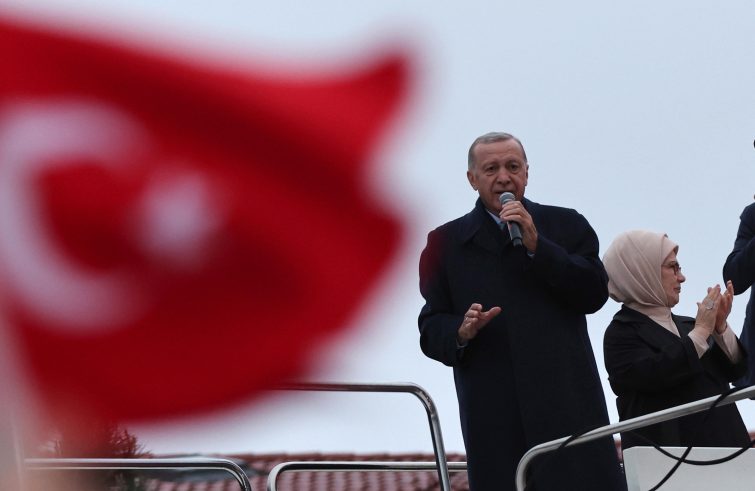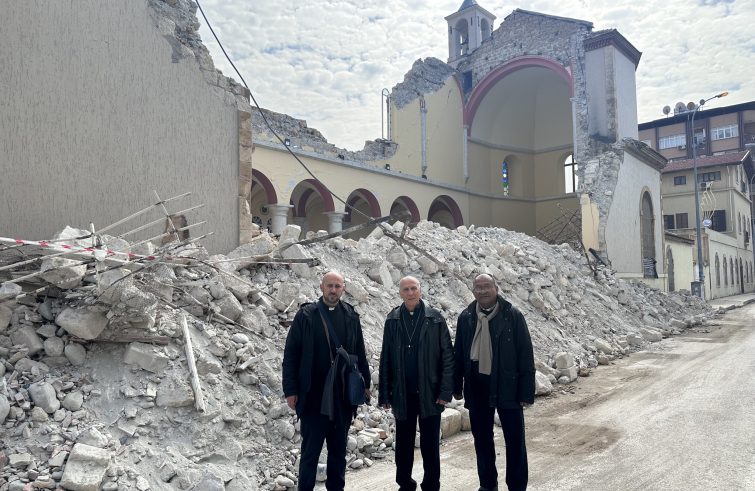
“I sincerely wish him to continue fostering a collaborative approach with all political, social, religious and cultural groups present in the country. Turkey is a country blessed with a wealth and variety of resources, and these are an asset to be enhanced, as opposed to being penalised.” Msgr. Paolo Bizzeti, Apostolic Vicar of Anatolia, President of Caritas Turkey, offered his congratulations to Recep Tayyip Erdogan who won 52% of the vote, making him President of Turkey for the next five years and for a third presidential term. It was an unprecedented electoral competition: for the first time since Erdoğan came to power the opposition had a real chance of defeating the outgoing president. With almost all the votes already counted, Erdoğan won with a lead of just over four percentage points over the centre-left candidate representing all opposition parties Kemal Kılıçdaroğlu, who stood at 47.9%.
Your Excellency, let’s start from here. It was a narrow victory. Did you expect it?
It is nevertheless a victory. “It was widely believed that these elections would mark the end of the Erdoğan era, but that’s not what has happened.”
In my opinion, this also reflects a lack of analytical insight into the current situation in Turkey. Personally, for various reasons, I had largely predicted Erdoğan’s victory, but many expectations were built up about his defeat, which ultimately proved to be inconsistent.
In your view, what are the reasons for this victory?
The Erdoğan government has undeniably made great achievements, especially on the international stage. Erdogan’s party, the AKP, propelled the country into the global arena over the past few years, and this is obviously appreciated by all, regardless of political affiliation. Admittedly, the fact that the media is largely in the hands of the government is something to be reckoned with. And despite it being a time of crisis the government has also delivered economic results – for example, major public works projects – that citizens applaud. Moreover, the Turkish society, or rather a considerable part of Turkish society, is extremely attached to a set of values that include the family, stability, traditions, and religion, which has a place in public life. Erdogan’s success can be explained in many ways, alongside his unquestionable personal charisma.
This morning the President is set to go and pray at St Sophia, which he reconverted into a mosque in 2020, indeed stripped back. Here in Europe it is widely believed that we are looking at a five-year regime, or, at the very least, a highly restrictive human rights policy. Are the Turkish people aware of this? What kind of future is in store?
With regard to the Saint Sophia incident, admittedly it was accorded considerable importance in the West, but once that moment passed, no one showed much interest. Suffice it to note the declarations of numerous Western governments after Erdoğan’s victory, which expressed more than just formal and almost due congratulations. In fact, some went further still and mentioned common values. Nevertheless, the election results highlight a division in Turkish society, with almost half of the population voting against Erdoğan, which means that a large number of people do not share this government’s views. His figure is likewise viewed very differently across the international spectrum. But the fact remains that the people have voted for him, that the President has won and many consider him an important interlocutor – even outside Turkey. Therefore, it can hardly be called a “regime.”
What are the expectations of the Catholic Church?
I doubt we will see any changes. It must be said that this government has not adopted a restrictive policy towards the Catholic Church.
However, a number of important issues remain unresolved, such as the recognition of legal personality, the possibility of building new churches, offering appropriate assistance to Christian refugees, that they may have a place of worship of their own… All of these issues should be addressed, but there is no a priori attitude of closure.
 You are also president of Caritas Turkey. In social terms, what kind of country will Erdoğan be heading?
You are also president of Caritas Turkey. In social terms, what kind of country will Erdoğan be heading?
The earthquake was a huge tragedy that requires major structural interventions and a rethinking of the Turkish construction industry, a sector that developed in an abnormal and unregulated manner.
Action must be taken to prevent a new tragedy, which is always lurking, given that we live in an earthquake-prone region. Then comes the urgent situation of people still living in tents and trailers, and clearly, once the elections are over, it will be necessary to tackle the plight of the poor and of those who have lost everything. These are serious situations. The upcoming summer heat and the threat of epidemics, for example, are a cause for concern.
These are challenging issues that the government must address with the support of other organisations, including Caritas.











